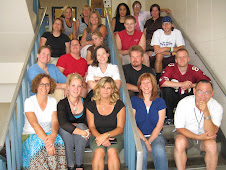Diane Waff's article Romance in the Classroom: Inviting Discourse on Gender and Power really struck a cord with me. The quote (or phrase) that "Eve ate the apple" will not die. In my Religions of the World and Introduction to Philosophy courses we discuss the relationship between gender and religion and/or gender and power, and this phrase. For those not raised in the Bible Belt, fundamental Christianity holds that eternal damnation is secured from Eve's action in the Garden of Eden, original sin enters the world stemming directly from her initial disobedience--Adam follows suit and also eats the apple, but not first mind you. Historically, this phrase has been used over and over again, perpetuating many undesired outcomes and stereotypes. A few examples could include the myth of woman-as-temptress and to explain why women have painful childbirth experiences.
While I believe it is important to identify areas of inequality, addressing the historical roots that have been planted, I would rather focus on how we as a society can provide a more equal future. I believe as educators it is our obligation to bring issues of gender into our classrooms. How do we change society, or the value society holds of women without discourse? I have found it very helpful to bring newspaper clippings/magazine articles/documentaries with real-life examples into the classroom to begin these discussions.
Subscribe to:
Post Comments (Atom)








2 comments:
Hi, Debbie--it is Debbie, isn't it?
Your writing gave me so many ideas for possible demos, and it sounds like you do this using the newspaper articles. How do our common narratives influence "undesired outcomes and stereotypes"?
How does the media portray gender and power relationships?
You could almost give each person in a class a picture of an image, or a name, and have them describe associations. Hmmm. I don't have this fully figured out. Just brainstorming.
I taught an Applied Communications class where we talked about gender stereotypes a lot. We looked at magazine advertisements and talked about the different ways men and women are portrayed. It's really eye-opening for my students because most of them have never really thought much about what they're being infiltrated with on a daily basis by the media.
Post a Comment